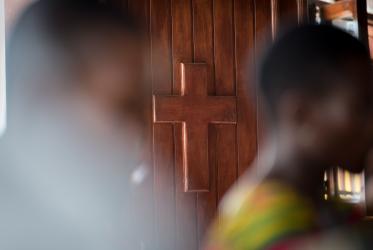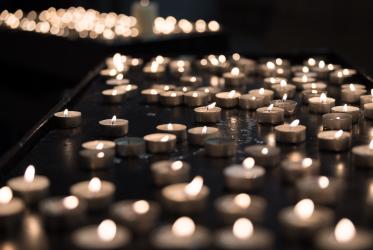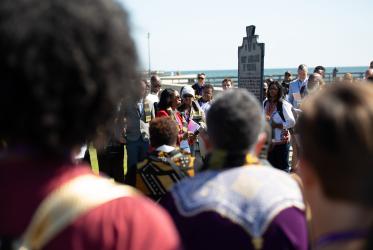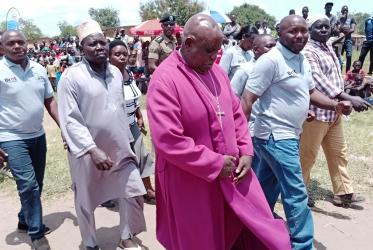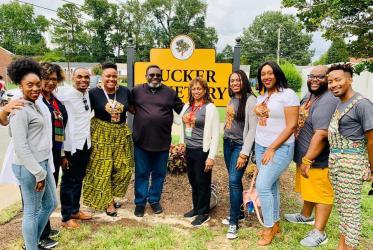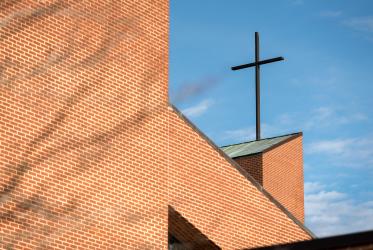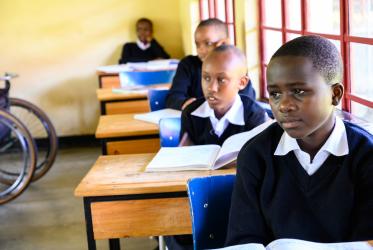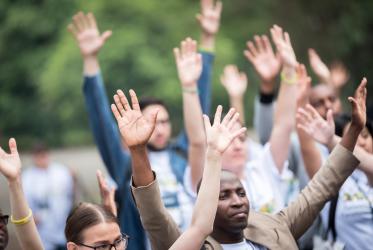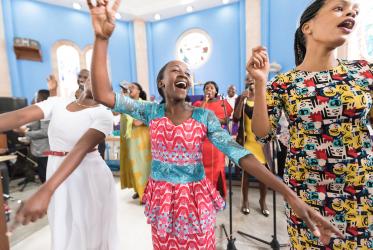Displaying 101 - 120 of 331
WCC condemns attack at Hanukkah celebration in New York City
29 December 2019
WCC mourns passing of Prof. Vuyani Vellem
09 December 2019
Tveit: “Combatting racism - a global ecumenical task”
17 October 2019
Religious leaders from South Sudan cherish those who host refugees
23 September 2019
Mission and people with disabilities
26 June 2019
How will the Arusha Call change the world?
20 May 2019


